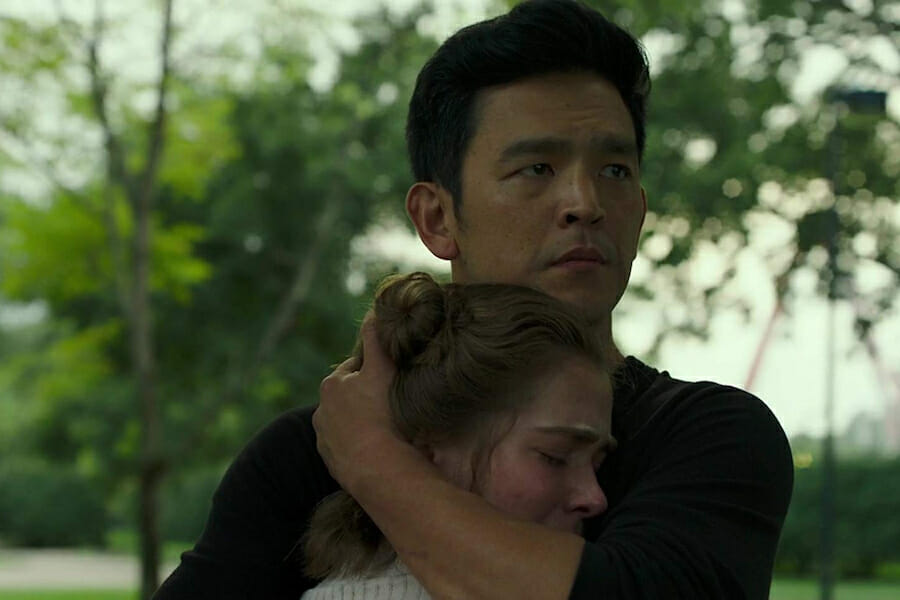
‘Columbus’ Review
Columbus, the first feature film from Korean writer/director/editor Kogonada provides intimate and revealing slices of life that are somehow simultaneously familiar, thought-provoking, and enlightening. There is so much going in this seemingly quiet little story that we are left thinking that it could easily have been split into 2 or 3 movies.
Haley Lu Richardson stars as Casey, a local girl who works in the library and as a tour guide. She’s clearly smart, and readily admits to sacrificing her future for the responsibility of looking after her mother (Michelle Forbes) – “a recovering addict.” Her exchanges with Gabriel (Rory Culkin) carry the weight of intellects-in-development, as well as strained attraction that is regularly shut down through sneakily awkward and uncomfortable moments. Their back-and-forth on reading, video games and attention spans is one of the best on-screen exchanges we will hear this year.
The film begins with an elderly man having some type of seizure, sending him to the hospital and canceling his scheduled architecture presentation. His son Jin (John Cho) arrives from out of town and the next morning has an initial inelegant crossing of paths with Casey. The lack of connection between the two transforms in a beautifully written and photographed scene the next day. Shot from the other side of the window glass with no audible dialogue, we witness the moment Casey lets down her guard and Jin becomes enamored. It’s a unique and wonderful scene – so quiet, yet it changes everything.
Columbus, Indiana is the other star of the film. Its famous modern architecture is featured prominently throughout as Casey guides Jin to her favorites. Their corresponding conversations, usually while puffing on cigarettes, gradually become more detailed and more revealing. Doorways, bridges, windows, and buildings become part of the conversation, and crucial to the look and feel created by cinematographer Elisha Christian.
Mr. Cho captures the stoic nature of a son inconvenienced by a Korean culture that requires him to be present should his father die. He is miffed by the need to ‘adequately grieve’ for the man who never put his own life on hold for his son. Ms. Richardson is the revelation here. Having seen her in Split, The Edge of Seventeen and The Bronze, it was obvious she had screen presence, but here she shows the depth and range that portends a long and varied acting career. Her slumped shoulders and panged expression are spot on for a 19-year-old who is too smart for her situation, yet too young and unworldly to know how to forge ahead.
Kogonada proves himself a sly storyteller as well as a master of visual setting, utilizing language, architecture and above all, conversation. At one point, Jin asks Casey “Are we losing interest in everyday life?” This filmmaker is doing his part to keep us aware and interested.
